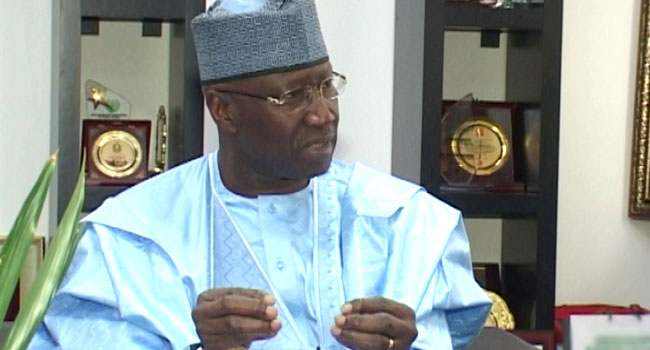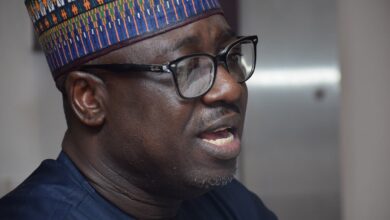FG recommends JAMB Registrar, Prof Oloyede, as model to leaders in education sector

By BASHIR ADEFAKA
Nigeria’s Federal Government, on Tuesday, lauded the values of Registrar/Chief Executive of Joint Admissions and Matriculations Board (JAMB), Prof. Is-haq Oloyede, while urging leaders in the education sector to emulate him.

This recommendation was given by Secretary to the Government of the Federation (SGF), Pastor Boss Mustapha, at the “Fourth National Summit on Diminishing Corruption in the Public Sector”, which was declared open President Muhammadu Buhari in State House.
The Summit was organised by the Independent Corrupt Practices and Other Related Offences Commission (ICPC), Office of Secretary to Government of the Federation (OSGF) and Joint Admission and Matriculation Board (JAMB).
President Buhari had described the summit this year as one that “will mirror how corruption undermines educational policies, investments and create an unfriendly learning environment for our youths.”
In his remarks, the SGF said education sector had steadily assumed a pariah status because of corruption that erodes values and resources, noting that education had become an enabler of corruption, instead of a tool for reforms and molding character.
According to him, “Corruption is eroding the practical purpose of education at all levels, primary, secondary and tertiary.’’
SGF Boss Mustapha urged leaders in the education sector to emulate the JAMB Registrar, Prof. Is-haq Olarewaju Oloyede, who had provided “good example of anti-corruption leadership.’’
The Minister of Education, Malam Adamu Adamu, said “JAMB is without doubt one of the parastatals that has achieved what no other agency has achieved by extending the boundaries of transparency and accountability in public service.’’
He said corruption was a manifestation of educational failure in society.
In his keynote address, former Chairman of Independent National Electoral Commission (INEC), Prof. Attahiru Jega, said perception of corruption corrodes the nation’s image among nations, adding “corruption stymies development, drains resources and weakens social contract with the people.’’









